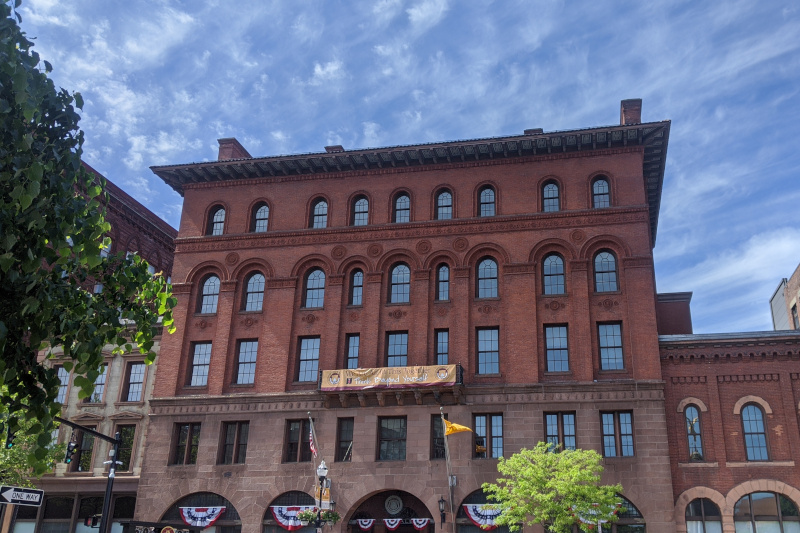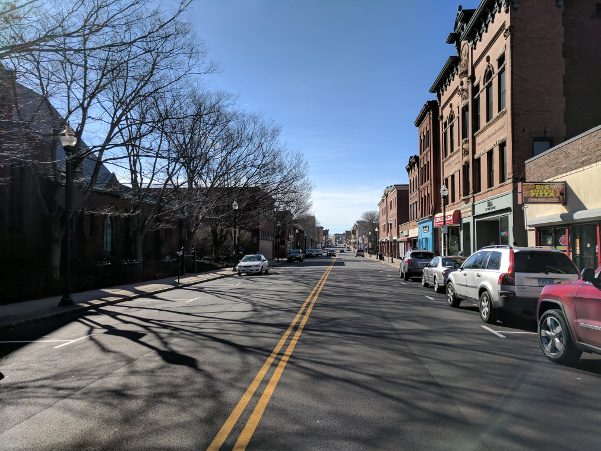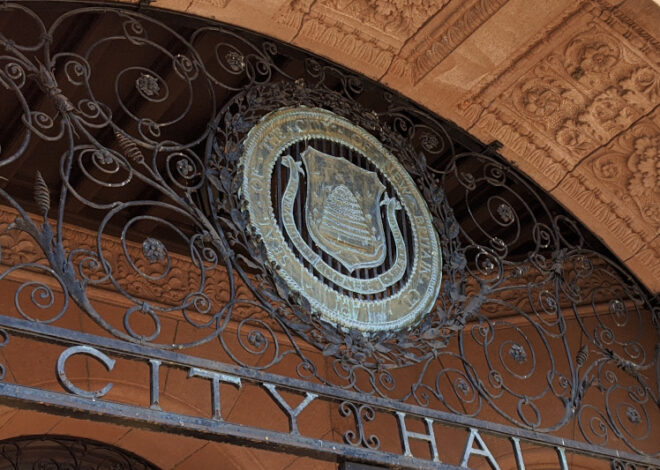
COO Patronage Job, End To Elections Of Clerk and Tax Collector Are On The Nov. 8 Ballot
Fuzzy Charter Question Will Keep Many Voters in the Dark
by John McNamara
New Britain voters will be deciding much more than who should be the Governor and making their picks for other elective offices on November 8th. City charter revisions will, if approved, make the biggest changes in a generation as to how Connecticut’s eighth largest city is governed.
On June 22nd the Common Council accepted the recommendations of the Charter Commission whose five members held hearings and meetings this year to amend the charter for the first time since a 2016 referendum was held. The Commission, chaired by former Alderwoman Sharon Beloin Saavedra, straightforwardly proposed four major changes for referenda that could be considered by voters on their merits and that would take effect for the most part in 2023.
On the composition of the Common Council the Commission called for ending the five at large seats on the 15-member council and electing three members per ward under the minority representation law. That resulted in the Council approving one of the two questions adopted: “Shall the Common Council be comprised of fifteen (15) members, consisting of three (3) members elected from each of the five (5) Common Council Districts, with the minority party requirements of the Connecticut General Statutes applying to each of the five (5) Common Council Districts separately?
City Hall Watch
On other significant changes the Charter Commission specified three specific questions for the ballot:
2) Shall the positions of Revenue Collector and the Town and City Clerk be changed from elected to civil service, appointed positions? (effective 2025)
3) Shall an appointed Chief Operations Officer, who shall report directly to the Mayor, be responsible for the daily management of certain City functions?
4) Shall the remainder of the changes to the Charter as recommended by the Charter Revision Commission be approved, which changes include a provision requiring periodic Charter review every five years at a minimum?
The Mayor and her Council majority, however, abandoned the Commission’s language in favor of an imprecise, “housekeeping” ballot question that gives no hint on what changes are proposed: “Shall the remainder of the changes to the city charter, as recommended by the charter revision commission be approved?”
Transparency and directness have been thrown out by Mayor Stewart and her Council caucus in the wording of the second charter referendum question and voters will be deprived of a clear idea of the big changes they will be asked to approve when they get in the voting booth or vote absentee notwithstanding the opportunity to read the little noticed fine print. The situation is akin to the tactic used by the Stewart administration in the 2016 charter referendum when multiple changes were made to the charter in a “housekeeping” question that went far beyond language changes. In a separate question that year a four-year mayoral term was comfortably rejected by voters.
Hidden in the “remainder of the changes” question is making the tax collector and town clerk jobs appointive rather than elected through a civil service process. More controversial is the creation of a six-figure Chief Operating Officer (COO)– the equivalent of a city manager – to handle executive duties that by charter are now the responsibility of the Mayor with the Mayor having appointment (patronage) powers in filling the position. It’s debatable whether such a post belongs in the city charter when a Council resolution could accomplish the same thing. The move by the Stewart administration also comes shortly after the Mayor’s annual salary got a double digit percentage increase and a process was established to hike elected officials’ pay on a regular basis. The COO job amendment, like appointing Clerk and Tax Collector via Civil Service, needed a separate ballot question just as the Charter Commission stated in its final report.
Assurances, of course, have been made that the city will fully disclose the content of all the charter changes with explanatory literature for voters at the polls and in public notices. State law (Sec.9-369b) requires the Town and City Clerk to print and disseminate “concise explanatory texts or other printed material with respect to local proposals or questions approved for submission to the electors at a referendum.” Each explanatory text, says state law, shall specify the intent and purpose of each proposal or question.
The City is not off to a very “concise” start in fulfilling the public’s right to know. In the July 19th New Britain Herald the city, in conformance with the law, published the charter amendments and strike throughs (deletions) in a small-type, two-page spread. For those of a certain age or visual acuity a magnifying glass will be needed to identify amendments buried in the text. Town and City Clerk Mark Bernacki will presumably do better in preparing posters for the polling places.
Two City Charter questions will be on the ballot on November 8th to vote up or down. Changing the Common Council to 15 district representatives under minority representation is clear in the first question. The Mayor and Republican caucus are deliberately keeping voters in the dark on the second question. This warrants a “No” from any voter wanting to vote on the merits of each major proposal.




